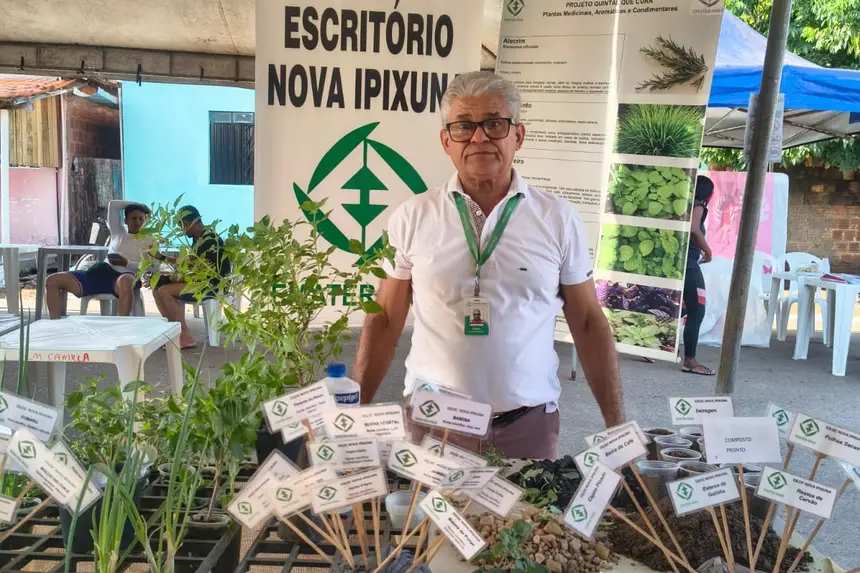Emater guides on medicinal plants in Nova Ipixuna, in southeastern Pará
The local office of the Technical Assistance and Rural Extension Company of the State of Pará (Emater) has been offering specific knowledge for the installation of gardens

A resident of Nova Ipixuna, on the Tucuruí Lake, Joeci Milano, 54, is preparing to participate in the installation of a garden within the Elvira de Oliveira Pinto Institutional Reception House, of which she is the coordinator: for this, she will rely on the consultancy about medicinal plants from the local office of the Technical Assistance and Rural Extension Company of the State of Pará (Emater): “There are very specific knowledge that will be very valuable: things that we, laypeople, end up doing wrong, and then the cultivation does not yield, does not develop,” she considers.
Some of these details would be the use of substrate that each species demands and even the differences in root fixation pressure in the soil: “I discovered that I cannot 'tighten' the mint, rosemary requires a larger amount of sand. It’s a universe of information that unfolds,” she says.
The municipal shelter works with children and adolescents in extreme vulnerability situations, and the garden will serve as an occupational space and a supplementary source of meals.
Practices
Milano got to know Emater's work better at the anniversary edition of the municipality's Producer Fair, promoted by the City Hall on Brazil Avenue, in the Center, on the 18th of this month. Last Monday (20), Nova Ipixuna celebrated 32 years of foundation.
At Emater's booth, the focus was on teaching the step-by-step of planting, even in small spaces, such as balconies and window sills. The agency also distributed 200 seedlings of okra and 120 seedlings of kale, lemon balm, melissa, and mallow, among other options.
“We are always conducting dissemination, really advertising, the viability and benefits of medicinal plants not only for family farming but for civil society as a whole: it is a living pharmacy and a rescue and maintenance of popular science in the Amazon. We advocate that medicinal plants be in a compound produced by themselves, so that it is not necessary to use chemical fertilizers,” points out agronomist Genival dos Reis, a specialist in Small and Medium Animals, head of the local Emater office in Nova Ipixuna.
The professional highlights the issue of kale: “I study kale as a medicinal plant: besides being a condiment, vegetable, it has therapeutic properties: it’s that thing: rich in calcium, and what nourishes heals,” he concludes.
Text by Aline Miranda









